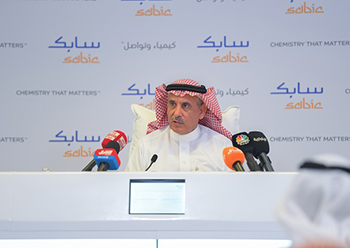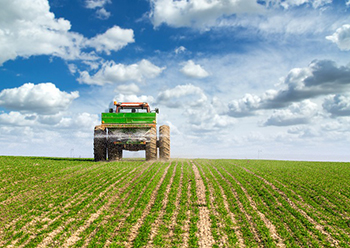

SABIC, a global leader in chemicals, has showed determination to deliver on growth, innovation and sustainability despite market uncertainties that have drastically affected profitablity.
Reporting on the financial results of the first quarter of 2023, Eng Abdulrahman Al-Fageeh, Chief Executive Officer and Executive Member of the Board, said SABIC will contribute to the transformation of Saudi Arabia into a manufacturing hub for specialised materials through a strategic project to build and manufacture catalysts.
SABIC reported a revenue of SAR39.69 billion ($10.58 billion) for the first quarter of this year, an 8% decrease quarter-over-quarter and a 25% decrease year-over-year. Net income during the first quarter totalled SAR660 million ($180 million), representing an increase of 124% compared to the previous quarter and a 90% decrease compared to the net income of SAR6.47 billion ($1.73 billion) in the first quarter of 2022.
Eng Al-Fageeh said of the first quarter 2023 results: “We are closely monitoring the changes and the recovery of the global market demand. New capacities in Q1 2023 are adding more pressure on global prices, while there is limited relief on variable cost. We continue to keep our operating costs under control and maintain our strong balance sheet. Despite current market uncertainties, our determination to deliver on growth, innovation and sustainability remains intact”.
 |
Eng Al-Fageeh continued: “To that extent, the Shareek program will play a key role in the next growth phase of SABIC. The first package of initiatives was launched during this first quarter of 2023, whereby SABIC will contribute to the transformation of Saudi Arabia into a manufacturing hub for specialised materials through a strategic project to build and manufacture catalysts.”
He said: “Our commitment to innovation and sustainability was demonstrated this quarter through winning three gold and two bronze awards in the prestigious Edison Awards. This is the third consecutive year being recognised, signifying our consistent leadership in new technology development and innovation that supports our continued business growth and a more sustainable planet.”
Over the course of the first quarter in 2023, SABIC announced several strategic agreements and developments that continued the company’s progression towards being the preferred world leader in chemicals.
For one thing, SABIC Agri-Nutrients converted feedstock from Saudi Aramco into low-carbon ammonia that was shipped to Japan for use as fuel in power generation. The shipment, which is a result of successful multiparty cooperation across the low-carbon ammonia value chain, is part of SABIC’s broader strategy to build a world-leading global supply network for the product.
Within the framework of international cooperation, SABIC was named an honorary strategic partner at the Boao Forum for Asia Annual Conference at the end of March. At the conference, Al-Fageeh called on the international community to increase cross-sector collaboration on sustainable economic growth and advancing a circular economy. He also highlighted opportunities for collaboration with China in expanding global sustainable economic growth and in aligning Saudi Arabia’s Vision 2030 with China’s Belt and Road Initiative.
In February, SABIC announced the strategic project to manufacture catalysts. The project, the first package of Shareek projects involving large companies in Saudi Arabia, will contribute to industrial advancements as envisioned in Saudi Vision 2030, including improving competitiveness of the energy sector, developing industries associated with the oil-and-gas industries, and raising the level of local content in this area.
Shareek was launched in March 2021 by the Crown Prince to enhance partnership with the private sector, develop partnership between the public and private sectors, and support sustainable growth to build the national economy.
Khalid Al-Dabbagh, SABIC Chairman, said: “The Shareek program is a quantum leap in national development, complementing the achievements of the past, aimed at building a prosperous national economy and attracting investments.”
Al-Fageeh stressed that the catalyst industry is the cornerstone of the energy and petrochemical industries. He highlighted its key role in accelerating the transfer and localisation of modern and advanced technologies in the petrochemical industry. This would contribute to raising energy efficiency and helping SABIC reach its carbon neutrality targets by 2050.
He added that despite the Saudi leadership in the energy and petrochemical industries, the Kingdom relies, to a large extent, on catalyst imports, which increases operational risks in the event of any supply chain disruption. “SABIC's investment in catalysts will contribute to securing our needs and that of the petrochemical manufacturers in the region.”
SABIC’s strategy for manufacturing catalysts is based on knowledge acquisition, applying the latest technologies and making improvements to them before localisation. To this end, SABIC has set a two-stage approach. The first is to fully acquire Scientific Design, which was done last year, and secure a key catalyst used by SABIC for the glycol manufacturing.
The second is to take the first phase forward with three new plants for the catalysts used in the manufacture of polymers and chemicals. Moreover, SABIC is collaborating with Shareek to identify the most important enablers and drivers to build the catalyst industry in the Kingdom.


